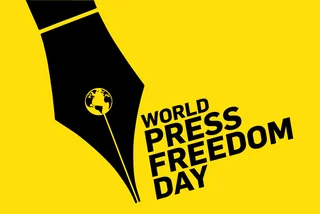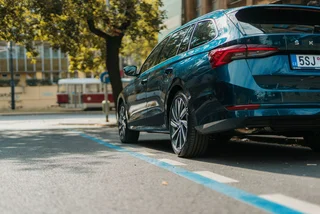The Czech Senate has passed two amendments that will now proceed to the president for his signature. The first bill concerns media ownership by politicians, while the second revises the driving laws.
Starting next year, the ban on media ownership by top politicians will become stricter, including the acceptance of subsidies and incentives under the amendment to the conflict of interest law, which the Czech Senate has approved.
Under the new regulations, politicians will no longer be able to transfer media to close individuals or trust funds, and higher fines will be imposed for violations. The tightened "lex Babiš" law, however, does not extend to online media due to a lack of regulation. Nevertheless, in an accompanying resolution, the Senate has urged the government to prepare a law defining online media and regulating the influence of public officials on such platforms.
Media law will apply to the head of state
Furthermore, the conflict of interest law will now apply to the head of state, as per the approved amendment. The president will be required to file an annual declaration of assets and will be subject to other obligations, including a ban on media ownership.
Specifically, the draft includes tighter provisions preventing MPs, senators, members of the government, and now the president from owning or controlling media outlets. To ensure that the ban cannot be circumvented, it will apply to the actual owner of the media operator, not just the controlling person. However, political parties, movements, their institutes, or controlled companies will be exempt from this ban when publishing periodicals.
New point system for drivers
Additionally, the Senate has passed changes to the system of penalty points for drivers, which will take effect next year, along with an increase in certain fines. The approved changes also include the possibility of driving from the age of 17 under the supervision of a mentor and the introduction of test driving licenses.
Under the revised regulations, drivers will only receive two, four, or six penalty points for offenses. For drunken driving, the driver will receive six points instead of the current seven but will face an administrative fine of up to CZK 25,000 instead of the current CZK 20,000. Refusing an alcohol test will result in a fine of up to CZK 75,000. The same penalty will be imposed on those driving without a valid license or despite a ban. Once a driver reaches 12 penalty points, they will lose their driving license, as before.
Licenses for driving at 17 under supervision
The new option allowing driving under the supervision of a mentor from the age of 17 aims to enhance road safety. The goal is to enable aspiring drivers to acquire the necessary skills under the guidance of experienced mentor drivers without prior offenses.
The test driving license serves as a preventive measure for new drivers. If a driver commits a six-point offense or has their license revoked for a severe offense within two years of obtaining the license, they must undergo a traffic psychology lecture and an "evaluation ride."
In specific sections of motorways, the new law will permit the maximum speed limit to be increased to 150 kilometers per hour from the current 130. This change will not result in an across-the-board increase in speed limits but will allow local authorities to implement higher speed limits through regulation.












 Reading time: 2 minutes
Reading time: 2 minutes 




























